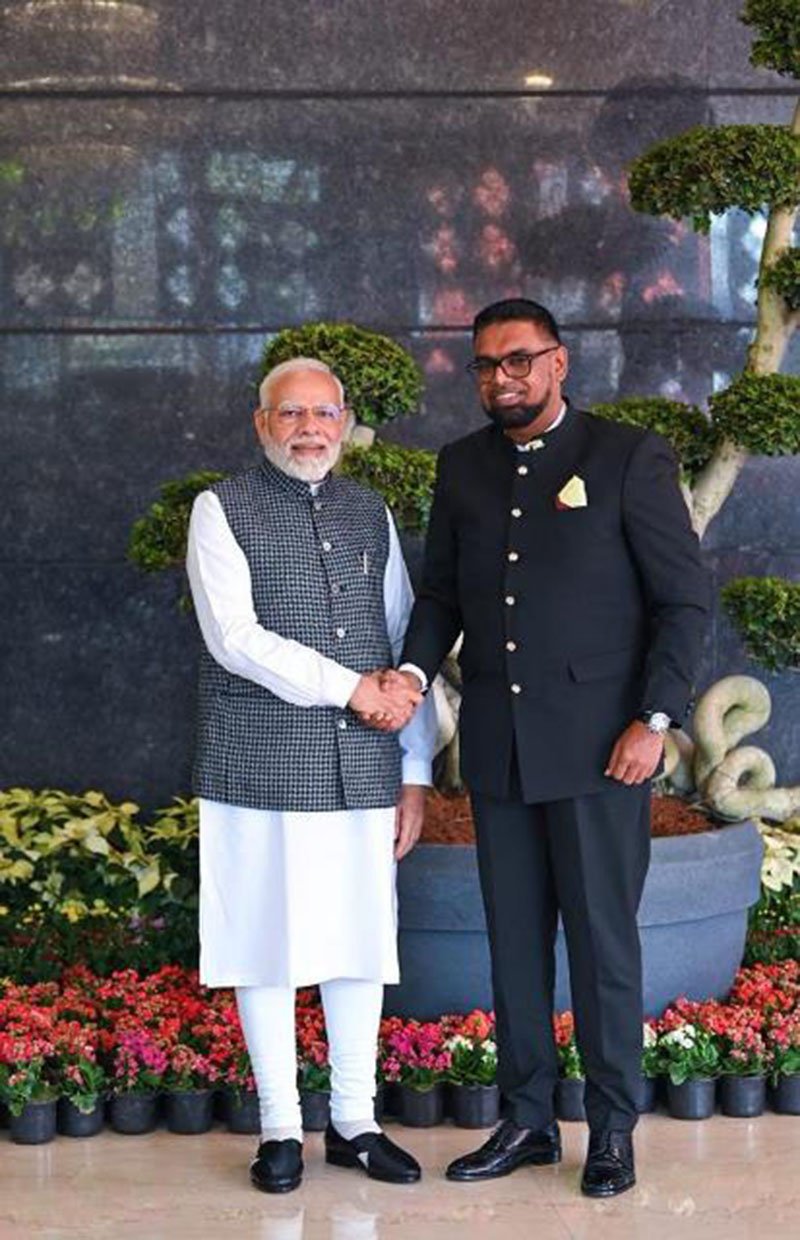Seemingly mindful of the importance of the critical role of the Diaspora in his administration’s ‘One Guyana’ agenda, President Irfaan Ali used his recent visit to India to underscore the significance of the overseas-based Guyanese community, particularly their potential role in the social and economic development of Guyana, in the country’s ‘oil and gas’ era.
While President Ali’s ‘One Guyana’ policy is yet to benefit from a documented policy framework, it appears to be driven, in large measure, by an acceptance of the reality that a socio-economic ‘makeover’ utilizing the anticipated returns from the country’s oil and gas earnings, will require both the broad range of skills and intellectual resources, as well as the potential of overseas-based Guyanese to add momentum to the country’s all-round development agenda. A January 9th official release on what the President had to say during his appearance at a public event, part of his recent official visit to India, stated that the President “is now embracing a diaspora integration model which flows from the belief that the country’s diaspora should not be treated as entities peripheral to nationhood, but rather as an integral part of national development.”
While there is still no statistical indication of the extent to which the oil and gas-driven development trajectory has influenced definitive decisions from Guyanese in the diaspora on remigration, global interest in what is now the country’s oil and gas-driven socio-economic direction has triggered a surfeit of public comment among ordinary Guyanese residing abroad, as well as qualified overseas-based Guyanese, possessing skills that are not readily available at home, as well as overseas-based business-oriented Guyanese who may be seeking out investment opportunities in what they now see as an economy that is finally changing gears. These days, individuals and groups of Guyanese have been far more open in their comments, both as individuals and as groups, on socio-economic developments in Guyana, many of them publicly sharing their perspectives on the socio-economic options which a transforming Guyana should take.
The state agency report, which said that the President’s remarks were made during “his address at the 17th Pravasi Bhartiya Divas (PBD) Convention” in Indore, India, included his comments on the importance of “the support of all Guyanese in advancing the One Guyana agenda, which promotes greater unity and shared prosperity amongst all.” The President is quoted as saying that Guyanese residing in the diaspora are “part of us and not apart from us” and that, accordingly, “it is necessary, when crafting policies, that we seek to integrate our diaspora into the process of national development. Policies, he reportedly said, “should be tailored to make our diaspora integral rather than incidental to nationhood….Our diaspora is integral to the One Guyana agenda,” the President is also quoted as saying.
While both the tone and content of the President’s ‘One Guyana’ pronouncements reflect an awareness of the importance of an all-hands-on-deck approach to national development in the period ahead, his thinking on the issue will also have to take account of the deep and largely race-driven divisions that remain rooted in the country’s political culture and the critical importance of frontally and determinedly confronting that dynamic if his ‘One Guyana’ policy is to benefit from universal endorsement by Guyanese both at home and in the diaspora. The President’s disclosure, during his address in India, that Guyana is keen to transform “brain drain into brain gain” must also factor in the importance of Guyana offering a socio-economic comfort level that will cause what he described as “our highly-skilled diaspora” to return to Guyana to reside and to work.
Setting aside what the President said were “the skills and expertise that are needed for the modernization of our economy,” and which reside in the diaspora, he also envisages a ‘foreign policy’ role for overseas-based Guyanese, pointing out that “many of the members of our diaspora are strategically placed in positions of influence to help protect and promote Guyana’s national interests overseas” as well as to project our external interests, including…………our democracy and to defend our territorial integrity and sovereignty, particularly from external threats. We look to our diaspora to champion the international causes which are germane to our national interests, including arresting climate change” and to pursue the “unlocking (of) markets for our products,” President Ali added.









